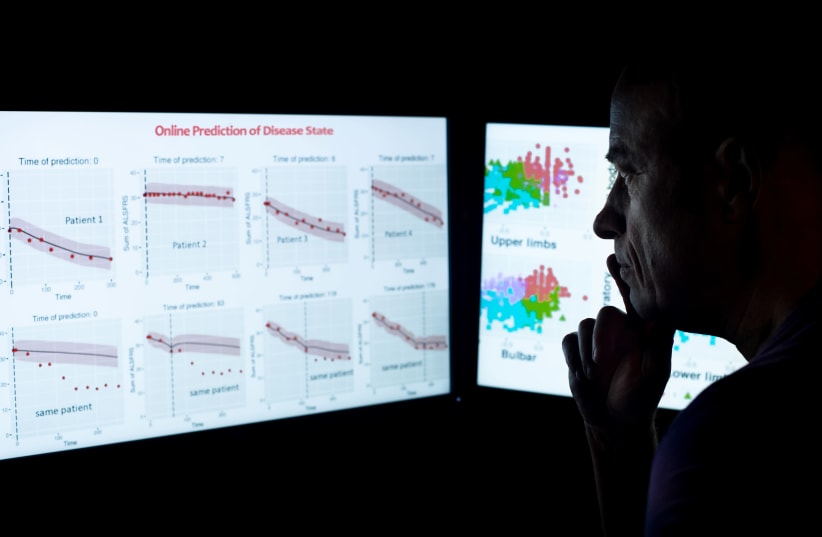The platform analyzes demographic and clinical data of ALS patients using machine learning and data mining algorithms to produce models that can predict the rate and pattern of ALS progression, identify factors essential for the prediction, and generate reliable stratification to homogeneous sub-groups of the heterogeneous ALS population.
There is currently neither a cure nor an effective treatment to halt or reverse the progressive disease.
Developed by Prof. Boaz Lerner of the university’s Department of Industrial Engineering and Management, the platform is soon set to be expanded to benefit patients suffering from other diseases including Alzheimer’s and Parkinson’s.
According to Lerner, the system provides three key benefits for those diagnosed with ALS or other neurodegenerative diseases, as well as caregivers and pharma companies.
The first benefit, Lerner told The Jerusalem Post, is the ability to reduce uncertainty and improve the patient’s and caregiver’s quality of life.
“If we can predict, for example, that the patient’s walking or speech ability will deteriorate in six months, he or she can organize the home to address their needs or move to a more appropriate environment, or start looking for a specific device to communicate with people. This will also enable physicians to know where to begin specific treatment, whether and when to focus on the respiratory system or physiotherapy.”
A second benefit is for pharma and medical device companies who can utilize the system to improve the design of clinical trials and record higher success rates due to its reliable patient stratification function.
By identifying markers of various patient sub-populations for which treatment is beneficial, thereby excluding other patients who would not benefit, clinical trials can be much quicker, with higher statistical significance and less expensive.
“The third benefit is that the tool that we have developed is quite generic, at least in the case of neurodegenerative diseases,” said Lerner.
“While ALS is a rare disease, Parkinson’s and Alzheimer’s diseases are much more prevalent. Using this algorithm, we can also extend our ability to these diseases.”
BGN Technologies has filed patent applications for the platform, and is now seeking an industry partner for the commercialization of the platform.
In addition to working to further develop and improve the desktop computer-based platform’s algorithms, Lerner is aiming to extend the platform to smartphones and the cloud, enabling every patient, caregiver and physician to inquire about future disease progression.
“We are also focusing on validating the system using clinical data received from medical centers, so we can see that according to past data, we can accurately anticipate the future state of any patient,” Lerner said.
BGN Technologies has established over 100 start-ups in the fields of biotech, hi-tech and cleantech based on academic research.
Seeking to bring technological innovations from the university laboratories to the market, the company has partnered with leading corporations such as Deutsche Telekom, Dell-EMC, IBM, PayPal, and Bayer over the past decade.
